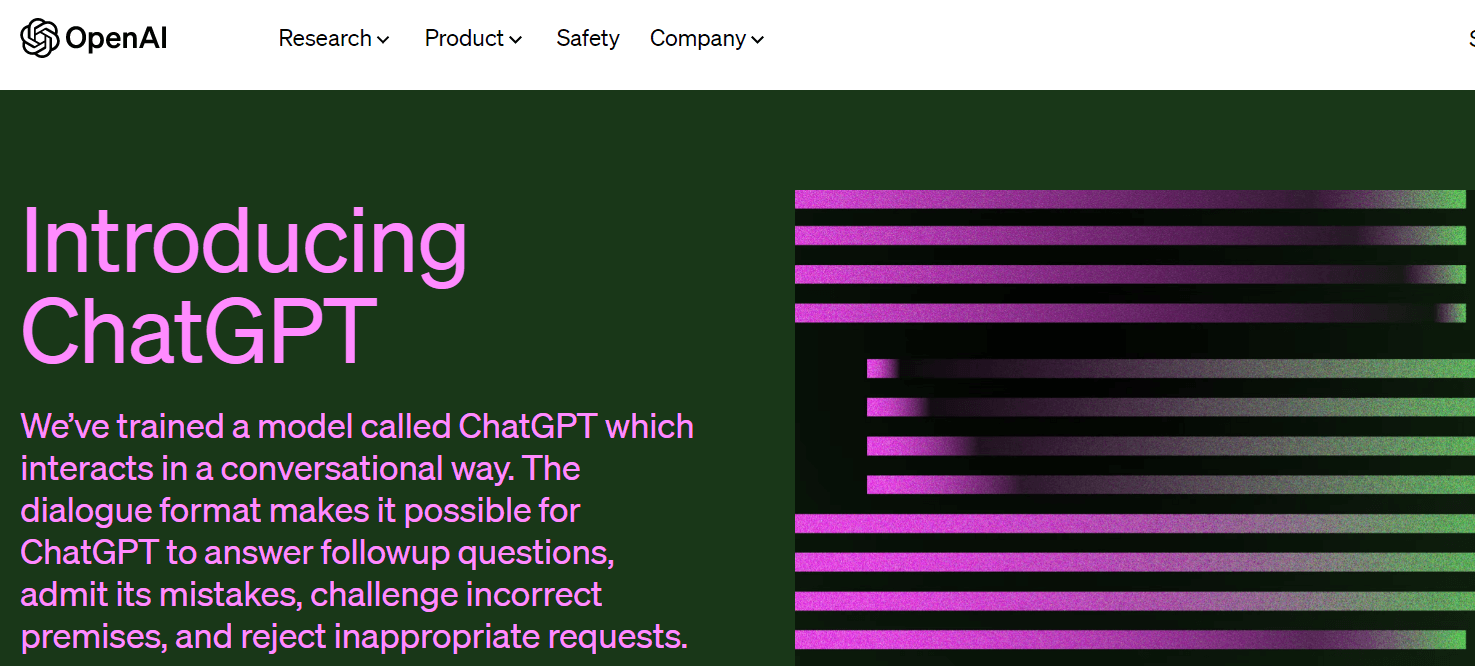
Chat GPT
The development of Chat GPT has been an important milestone in applying artificial intelligence to support search engine optimization. This technology involves training algorithms on large datasets to generate human-like language, allowing for more natural and seamless interaction between humans and machines. Over the years, Chat GPT has become increasingly more sophisticated, providing more context-based information that can inform search engine optimization strategies. By using pre-trained transformer models like BERT and GPT-2, AI can now provide better answers to questions asked by users searching online. In addition, these models can learn from past data and predict future trends, which can be useful when optimizing a website or blog post for SEO purposes. As technology evolves, AI and SEO have become more intertwined than ever.
For this reason, digital marketing professionals must stay up-to-date with Chat GPT and AI advancements to properly optimize their websites. In particular, understanding how these models can enhance search engine optimization can lead to greater visibility, engagement, and profitability of a business’s website. This article seeks to provide an overview of Chat GPT and its use within SEO so that online marketers better understand the technology. With this knowledge, businesses can leverage the power of AI to improve their search engine rankings and overall internet presence.
AI and SEO Processes:
AI is rapidly revolutionizing SEO practices, and it’s no secret that businesses must keep up to stay competitive. AI-driven SEO techniques such as Natural Language Processing (NLP), Machine Learning (ML), and Deep Learning (DL) are already being used by many companies to optimize their websites for better search engine rankings. NLP provides the ability to understand user intent, ML allows machines to learn from data, and DL helps computers extract insights from large datasets. These techniques can be applied together or separately to improve a website’s optimization efforts.
For example, using NLP for keyword research involves analyzing user queries to determine which terms should be targeted on a page. This process can help businesses identify the most relevant phrases so that they can create content that focuses on those particular keywords. Additionally, AI can analyze customer reviews and feedback to determine which topics will likely be influential for ranking purposes. This approach, known as sentiment analysis, helps businesses improve their site’s overall structure.
AI also plays an important role in optimizing meta descriptions, titles, and images for better organic visibility. Using ML algorithms, websites can automatically generate optimized page titles and meta descriptions that meet criteria such as length or keyword density. Furthermore, AI-driven image recognition techniques allow marketers to quickly find suitable images based on user search terms without manually sorting through thousands of potential options.
The advantages:
AI is rapidly becoming one of the most powerful tools for SEO efforts. The advantages of using AI to optimize a website are numerous and can help businesses gain an edge over their competitors.
Read Article: The Beginner’s Guide: What Is Search Engine Marketing?
One major advantage of using AI for SEO is the ability to automate certain tasks. For example, AI can automatically identify search engine user behavior trends and adjust website content accordingly. This helps streamline optimizing a website for maximum visibility and ensuring that content remains relevant and engaging to users. Additionally, techniques such as natural language processing (NLP) allow websites to understand user intent better when they make queries on search engines. By leveraging this technology, businesses can create more targeted content designed specifically to meet those user needs.
Another advantage of using AI for SEO is quickly analyzing large amounts of data. By leveraging machine learning algorithms, businesses can automate keyword discovery and sentiment analysis processes with much greater efficiency than if these tasks were done manually. This provides a better understanding of customer behavior which can be used to create more effective strategies for optimizing content and improving website visibility. Additionally, AI-driven image recognition technologies enable marketers to easily find appropriate images that match user search terms without having to sort through thousands of potential options manually.
To get the best out of these advantages, businesses must ensure they are utilizing the latest advancements in AI technology. This means regularly updating their knowledge base on new trends and techniques and investing in the necessary tools for implementing AI-driven solutions. Additionally, businesses should focus on developing an effective data strategy that can be used to make better decisions about content optimization. By utilizing these strategies and technologies, companies will be able to leverage the power of AI to create more successful SEO campaigns.
To conclude, AI offers a variety of advantages when it comes to optimizing websites for better search engine rankings. Businesses should take advantage of these benefits by keeping up with advancements in AI technology and creating an effective data strategy. Doing so will ensure that they can maximize the potential benefits of using AI for SEO purposes.






